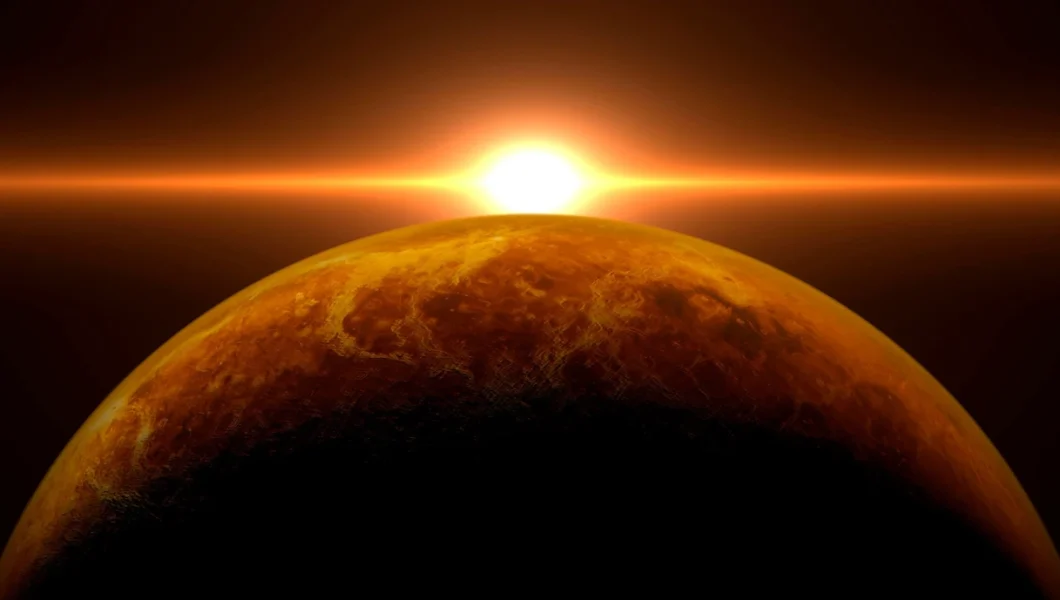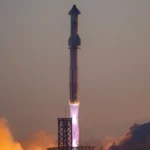Private Mission to venus: Search for Alien Life in Clouds of Sulfuric Acid
The first-ever private mission to Venus is set to launch in 2025. With a focus on detecting organic chemistry, the mission aims to search for signs of alien life in the planet’s clouds of sulfuric acid. This groundbreaking endeavor marks a pivotal moment in Space Exploration.
Exploring venus: A Unique Endeavor
Venus, often considered a hellish planet due to its extreme temperatures, is also a subject of interest for scientists examining the potential existence of high-altitude life. The forthcoming private mission to Venus will delve into the possibility of life within the planet’s Cloud-enveloped atmosphere, providing a unique exploration opportunity.
Launch Details and Principal Investigator
The mission is scheduled for launch in January 2025 aboard Rocket Lab’s Electron rocket, a pioneering entrepreneurial launch vehicle provider. Spearheading this extraordinary undertaking is Sara Seager, a distinguished professor of planetary sciences at the Massachusetts Institute of Technology (MIT). She serves as the principal investigator for the Venus Life Finder, which represents the inaugural mission in a series of planned Morning Star Missions to Venus.
Scientific Foundation of the Mission
The mission’s scientific underpinnings are rooted in recent research that has sparked significant curiosity. A crucial step was the publication of a paper entitled “Stability of Nucleic Acid Bases in Concentrated Sulfuric Acid: Implications for the Habitability of Venus’ Clouds” in the peer-reviewed journal Proceedings of the National Academy of Sciences (PNAS). This research, led by Seager and colleagues, explores the potential habitability of Venus’ clouds and its implications for the search for alien life.
Understanding the Venusian Environment
The Venusian clouds comprise concentrated sulfuric acid, a notoriously hostile chemical Environment. While traditionally believed to be sterile to any form of life due to its destructive nature, the research conducted by Seager and her team indicated that key molecules required for life, such as nucleic acid bases, can remain stable in this inhospitable setting. This groundbreaking revelation challenges previous assumptions and ignites enthusiasm for scientific exploration.
Key Findings and Future Missions
The team’s efforts have demonstrated the potential for complex organic chemistry, including DNA nucleic acid bases, to endure in concentrated sulfuric acid. This discovery has catalyzed the design of missions aimed at directly probing the Cloud particles for the presence of organic material. Moreover, it has prompted discussions about the potential necessity of sample return missions from the Venusian atmosphere to robustly identify any potential life forms.
Innovative research Methodology
One particularly striking aspect of the research is its uniqueness and Innovation. Sara Seager and her son, Max Seager, embarked on a series of experiments involving concentrated sulfuric acid. Their efforts, which have involved formulating concentrated sulfuric acid-based brews, highlight the pioneering nature of their work. Max Seager, a junior at Worcester Polytechnic Institute in Massachusetts, actively contributed to the research, showcasing the collaborative and multidisciplinary nature of this scientific exploration.
Implications and Future Prospects
The implications of this endeavor extend beyond the confines of Venus. Max Seager’s research, emphasizing the study of organic chemistry in alternative solvents from water, serves as a critical step in comprehending the extent of habitability within the galaxy. It represents a call to Action for further research in this domain and holds promise for expanding our understanding of potential life forms beyond Earth.
Conclusion
The forthcoming private mission to Venus embodies the spirit of pioneering exploration and scientific ingenuity. It represents a significant milestone in our quest to unravel the mysteries of the universe and potentially discover alien life forms. By challenging preconceptions and leveraging innovative research methodologies, this mission ignites hope and curiosity for the future of space exploration and the quest for extraterrestrial life.
Source: space








No Comments